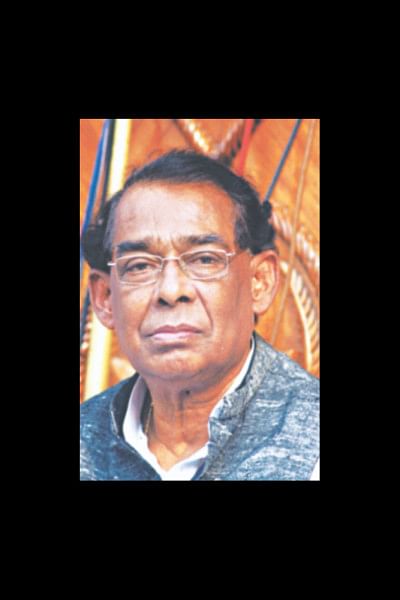NGOs can't have right to freedom of expression

Chief of a parliamentary standing committee has claimed that non-government organisations (NGOs) cannot have the right to freedom of expression as mentioned in the country's constitution.
“Freedom of expression and freedom of thinking are only for citizens. Non-government organisations do not have this right. They do not have the right to criticise parliament or any constitutional body,” said Awami League MP Suranjit Sengupta, chief of the parliamentary standing committee on law.
Speaking at a press conference at the Jatiya Sangsad Media Centre Tuesday, Suranjit also refuted the claim that the recently passed “Foreign Donations (Voluntary Activities) Regulation Bill 2016” contradicted the constitution that separately guarantees press freedom along with recognising citizens' freedom of thought, conscience, expression, and speech.
“Freedom of expression is applicable for the citizen, not for any organisation. NGOs are inferior here,” he said.
Despite widespread criticism from different quarters, including local and international rights groups, the United Nations Special Rapporteur on the Rights to Freedom of Peaceful Assembly and of Association, European Union, the Jatiya Sangsad on October 5 passed the bill, introducing a punitive provision making it an offence for foreign-funded NGOs to make "inimical" and "derogatory" remarks on the constitution and constitutional bodies.
Expressing their grave concern over the law, NGOs recently said the law would create a scope for limiting fundamental rights including freedom of speech, thought, conscience and organisation, safeguarded by the constitution.
According to the bill, if any foreign-funded NGO engages in anti-state activities and finances extremist and terrorist activities, those would be considered offences under the provision, and the NGO and its officials concerned would be tried under the country's existing laws.
The new provision empowers the NGO Affairs Bureau to cancel or withhold the registration of a foreign-funded NGO or ban its activities for committing the offence.
Asked who will define the words "inimical" and "derogatory”, Suranjit said rules would be formulated in this regard after consultation with respective stakeholders.
Different NGOs demanded that the government amend the law through deleting the controversial provision.
Suranjit said NGOs were born through rules; that was why they could not speak foul against parliament or other constitutional bodies.
“If they want to speak like the opposition party, they can enter politics.”

 For all latest news, follow The Daily Star's Google News channel.
For all latest news, follow The Daily Star's Google News channel. 




Comments